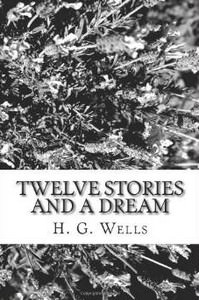


Then we see at once that the futurities-those jugglings with the time-sense for which he is very famous-are only a scrap of his collection. where he stands full-high, as an entertainer. If we undo their work, and classify each sort apart, we are in a position to examine the complete phenomenon of H. The publishers have grouped them, irrelevantly, to give their bulk palatable variety. It would be scientific to date each tale, and consider Wells as a growth, like an oak-tree. In these shorter pieces he is determined to entertain and to relieve his imagination of a burdening idea: there is no ephemeral moral underlying them. At his highest he writes magnificently and deliberately always never falling below adequacy: only the stuff of the novels is too contentious to show us a clean edge. So that any person with an ear and knowledge of letters, after about six lines, says ‘Wells,’ and is right every time. Yet he cannot keep out of his work that secret rhythm which its sentences (bare of relative clauses, and dependants, and adjectives, and participles) hold somewhere in their structure. Indeed, he spares little admiration for pure writing, which he thinks a fad of emasculate amateurs. This role of politician and sociologist he imposes upon the primal artist. He preaches and argues and attacks, has theories and practical programmes, tries to get something done. In his mature novels we cannot see the writer for the dust of his manly activities. This sudden bulk of tales seems a chance to distinguish the profile of H. His writings let us into so many workshops and laboratories that we would like to see his own. His drafts would tell us if this huge production is due to industry or to a happy fluency. Besides this decent life-output for a short-story writer Wells has the achievement of his massive History, and a shelf of novels, and miscellaneous prose-work, literary or political. My memory vaguely suggests to me others not here included.

In this collection are sixty-three stories, none negligible, some very long. It is nearly as difficult to see how Wells did it. Probably they are renumbered stereos of another edition, otherwise Messrs Benn could hardly have done it. One thousand one hundred and fifty pages of H.


 0 kommentar(er)
0 kommentar(er)
